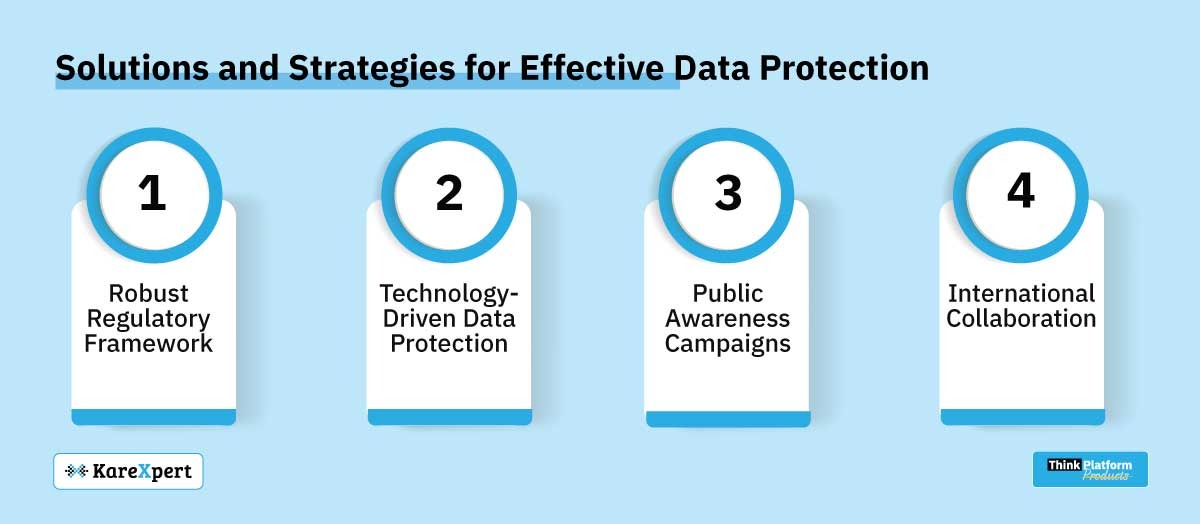Data Protection in India: From Digital Wild West to Cyber Fortress

The Legal Framework for Data Protection in India
1. The Personal Data Protection Bill, 2019
The cornerstone of India’s data protection framework is the Personal Data Protection (PDP) Bill, 2019. Modeled after the European Union’s General Data Protection Regulation (GDPR), the PDP Bill seeks to provide a comprehensive law that addresses the processing, storage, and transfer of personal data.
– Key Provisions of the DPDP Bill:
– Data Fiduciary and Data Principal: Defines entities that process data (data fiduciaries) and individuals whose data is being processed (data principals).
– Consent-based Data Processing: Emphasizes processing data based on explicit consent obtained from data principals.
– Data Localization: Mandates that critical personal data must be stored within India.
– Data Protection Authority (DPA): Establishes an independent regulatory body to oversee data protection and handle grievances.
2. Information Technology (Reasonable Security Practices and Procedures and Sensitive Personal Data or Information) Rules, 2011
Supplementing the PDP Bill, these IT Rules provide guidelines for the protection of sensitive personal data. They require organizations to implement reasonable security practices and procedures to safeguard data, covering areas such as data collection, disclosure, and transfer.
3. Data Protection Aspects in Sectoral Regulations
Various sectors in India, including healthcare and finance, have their own specific regulations that address data protection. For instance, the National Digital Health Mission (NDHM) framework incorporates stringent data protection measures to safeguard health data.
Challenges in Data Protection in India
1. Balancing Regulation and Innovation
One of the significant challenges is finding the right balance between stringent data protection regulations and fostering innovation. Over-regulation may stifle technological development and the growth of the digital economy.
2. Data Localization vs. Global Operations
The data localization mandate in the PDP Bill requires organizations to store certain types of data within India. While this enhances data security, it poses logistical and operational challenges for multinational corporations that operate across multiple jurisdictions.
3. Implementation and Compliance
Ensuring compliance with data protection laws across diverse sectors and businesses of varying sizes is challenging. Smaller businesses, in particular, may struggle to implement the necessary security measures and practices due to limited resources.
4. Public Awareness and Education
A crucial aspect of data protection is public awareness. Many individuals are still unaware of their rights concerning personal data, which can lead to uninformed consent and data misuse.
Solutions and Strategies for Effective Data Protection

To address these challenges and enhance data protection in India, several strategies can be implemented:
1. Robust Regulatory Framework
While the PDP Bill sets a strong foundation, its effective implementation requires a combination of robust regulatory mechanisms and a proactive approach by the Data Protection Authority (DPA).
2. Technology-Driven Data Protection
Leveraging advanced technologies such as encryption, blockchain, and artificial intelligence (AI) can strengthen data protection measures. Encryption ensures data security during transmission and storage, while blockchain provides a secure and transparent ledger for data transactions.
3. Public Awareness Campaigns
Educating the public about data protection rights and best practices is essential. Government and private sector initiatives should focus on creating awareness through campaigns, workshops, and educational programs.
4. International Collaboration
Given the global nature of data flow, international collaboration is key to effective data protection. India can adopt best practices from other countries and engage in data-sharing agreements that ensure mutual protection standards.
KareXpert: Pioneering Data Protection in Healthcare
In the healthcare sector, data protection is of paramount importance due to the sensitivity of health information. KareXpert, a leading healthcare technology provider, is at the forefront of integrating advanced data protection measures to safeguard patient information.
1. Compliance with Regulatory Standards
KareXpert complies with both national and international data protection regulations, ensuring that health data is handled with the utmost care and security.
2. Advanced Security Protocols
KareXpert employs state-of-the-art encryption methods, multi-factor authentication, and regular security audits to protect data from unauthorized access and breaches.
3. Data Privacy by Design
KareXpert’s platform is built with privacy by design principles, ensuring that data protection is integrated into every aspect of the software development lifecycle.
4. Patient Empowerment
Through patient portals and consent management systems, KareXpert empowers patients to have control over their health data, promoting transparency and trust.
The Future of Data Protection in India
As India continues to digitize and integrate technology into various sectors, the importance of robust data protection cannot be overstated. Looking ahead, the following trends are likely to shape the future of data protection in India:
1. Artificial Intelligence and Machine Learning
AI and machine learning will play a significant role in identifying threats and enhancing data security through predictive analytics and automated responses.
2. Decentralized Data Storage
Blockchain and decentralized storage solutions will provide secure and transparent ways to manage data, reducing the risk of breaches.
3. Greater Emphasis on Data Ethics
Beyond compliance, organizations will focus on data ethics, ensuring that personal data is used responsibly and ethically.
4. Collaborative Efforts
A collaborative approach involving government, industry stakeholders, and the public will be essential in creating a holistic data protection ecosystem.
Conclusion
Data protection is a critical aspect of India’s digital transformation journey. As the country continues to advance technologically, safeguarding personal data is paramount to maintaining trust and ensuring the privacy and security of individuals. By implementing robust regulatory frameworks, leveraging advanced technologies, and fostering public awareness, India can navigate the complexities of data protection effectively. KareXpert’s commitment to data protection in healthcare sets a benchmark for other sectors to follow, demonstrating that with the right strategies, data protection and innovation can coexist harmoniously.
Is your organization ready to embrace the future of data protection? Trust KareXpert to provide the advanced security solutions and expertise needed to safeguard sensitive information effectively. Contact us today to learn more about how we can help you navigate the complexities of data protection and secure your operations.
